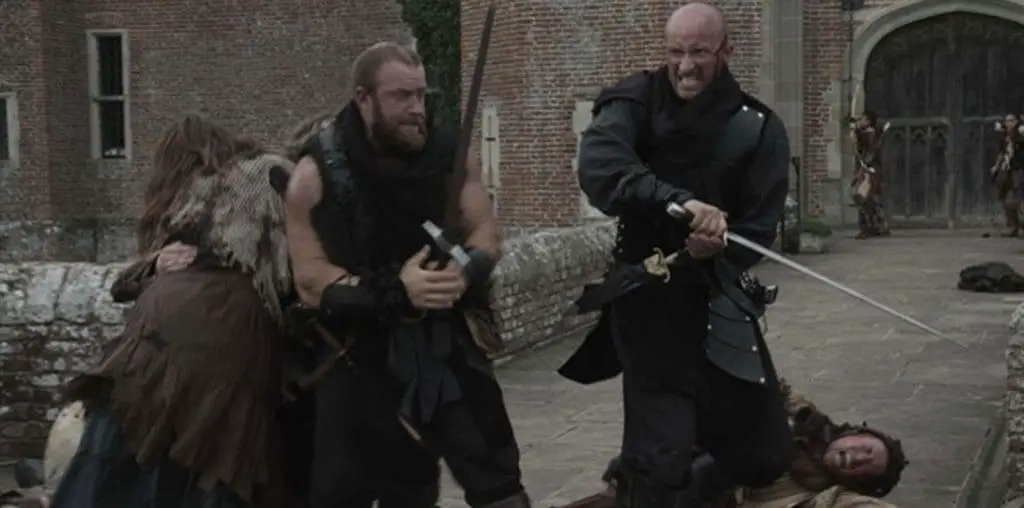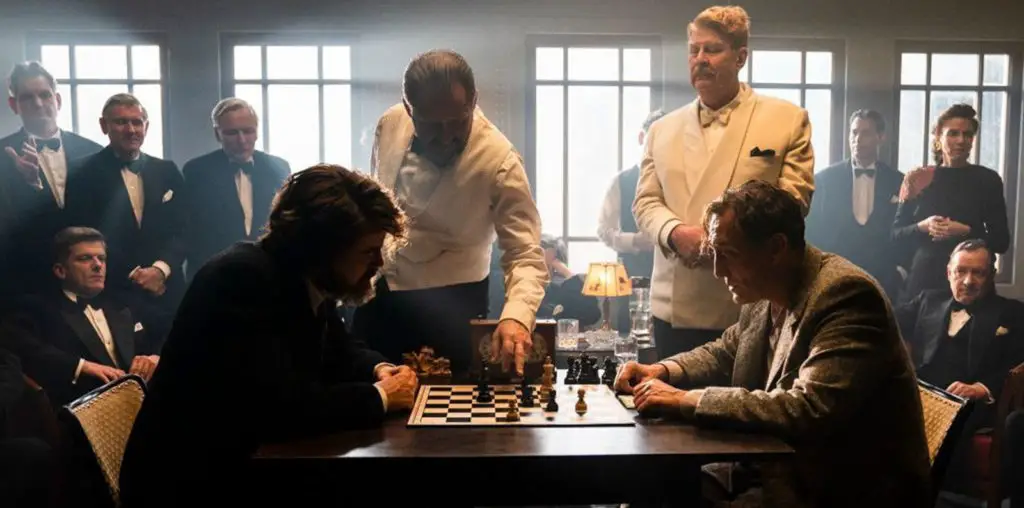
BOOTLEG FILES 217: “The French Way” (1940 French comedy starring Josephine Baker).
LAST SEEN: We cannot confirm the last public screening of this film.
AMERICAN HOME VIDEO: No official release.
REASON FOR BOOTLEG STATUS: The lack of an official U.S. rights holder allows for bootleg dupes to be freely sold.
CHANCES OF SEEING A COMMERCIAL DVD RELEASE: It could happen in the near future.
The lesson I learned from watching “The French Way” was actually a confirmation of something I suspected for a long time: never trust the critics. This 1940 French comedy is widely regarded by many critics to be a mediocre trifle. In my view, however, I am genuinely surprised that this production is so entertaining and (to a U.S. perspective) daring. I am also stunned that it has never received a proper U.S. commercial home entertainment release.
“The French Way” (known as “Fausse alerte” in France) is primarily recalled today because its star was the incandescent cabaret diva Josephine Baker. The St. Louis-born Baker overcame extraordinary barriers to become one of the biggest stars in French entertainment, achieving success on stage, screen and recordings. However, her popularity never extended back to her home country, and she made several vain attempts to gain the favor of American audiences. But since her death in 1975, Americans belatedly discovered what they were ignoring – and through a new appreciation of her films, Baker has been reconsidered by her countrymen as one of the most amazing talents of the 20th century.
“The French Way” is an amusing farce with a fascinating historical grounding: it’s the Romeo and Juliet tale set in a surprisingly nonchalant Paris during the early months of World War II. Young lovers Claire and Bernard need to sneak off to enjoy quality time together at a local café because their parents are at war. Claire’s widowed mother, Madame Ancelot, claims descent from Napoleon, albeit from the illegitimate result of the diminutive emperor’s adulterous fling. But Bernard’s widower father, Monsieur Dalbon, is a Napoleon biographer who insists no such hanky-panky took place, thus neutralizing Claire’s mother regal claims.
In the middle of this mess comes Bernard’s neighbor, the glamorous entertainer Zazu, who has returned to Paris to open her popular nightclub. That’s Josephine Baker’s role, and she plays it with good-natured charm. Zazu is somehow recruited to mediate the conflict between the warring parents and allow them to bring their children together for marriage. In between the lovers’ dilemma, Zazu takes time to perform several song and dance numbers.
Baker’s role is actually a supporting part – there are long stretches of the film where she is absent. “The French Way” is really an ensemble piece where a multitude of off-beat characters zip in and out of the story. There is one genuinely unusual creation – an indolent hobo who finds himself recruited for endless job opportunities – along with the usual collection of comic stock characters – including Zazu’s none-too-masculine musical arranger, the bevy of clueless blonde showgirls, a noisy old spinster who dotes on her tiny dogs as if they were babies, a self-important café owner who is bossed around by his heavyweight wife, and clean-cut soldiers ready to march off and defend France from the Germans (hey, it is a farce!).
But beyond the usual giddiness of romantic comedy, “The French Way” offers two striking sociological considerations that were not appreciated in its time. The first involves the war and the insouciant manner in which the characters deal with the military conflict. If this film is any indication, the French weren’t particularly concerned about the war. Bernard talks about shipping off to fight, but he is more concerned with wooing the lovely Claire rather than fighting Adolf and company. At several points in the film, the characters need to gather in underground air raid shelters. This action is handled very matter-of-factly, to the point that the shelters wind up being used for romantic rendezvous settings and a Josephine Baker musical number!
Then there is Baker’s presence. For French audiences in the 1940s, it didn’t seem odd to see a successful black woman who lived in an all-white apartment building, ran her own business with all-white employees, and dressed in stylish clothing. Of course, in Hollywood in the 1940s there was no equivalent treatment for African-American women. For Americans, “The French Way” is extraordinary to behold since Baker’s race is never an issue. What did the French know that the Americans didn’t?
“The French Way” was shot in early 1940, but the film was not seen in France until 1945. As anyone who watches The History Channel may recall, the nonchalant French attitude to the war created significant problems during the years 1940 to 1944. By the time the movie reached the French big screen, the country’s cinemas were overrun with American imports – complete with their negative presentation of black women – and it was not a hit.
Americans never had a chance to see “The French Way” until 1952, when the tiny Manor Films brought it over. However, 18 minutes were cut from the original print, including Baker’s provocative “feather dance” number. The film received poor reviews (the New York Times was particularly scathing of Baker’s performance) and scant distribution, and it remains barely known today.
As stated earlier, Baker’s fame in the U.S. is greater today than it was during her lifetime. Several of her French-made films are available on U.S. DVD (most notably “Zouzou” and “Princess Tam-Tam”), but “The French Way” is curiously absent. Bootlegged dupes from the truncated 1952 U.S. release have floated about for years, but neither Kino International (the distributor of Baker’s starring films) or any other company has sought out “The French Way” for restoration and re-release.
“The French Way” is not a great film, by any stretch, but it is an amusing diversion that is not deserving of its continued obscurity. With luck, it will find its way into commercial channels, thus allowing American audiences to reconfirm their better-late-than-never love affair with Josephine Baker.
IMPORTANT NOTICE: The unauthorized duplication and distribution of copyright-protected material, either for crass commercial purposes or profit-free s***s and giggles, is not something that the entertainment industry appreciates. On occasion, law enforcement personnel boost their arrest quotas by collaring cheery cinephiles engaged in such activities. So if you are going to copy and distribute bootleg videos and DVDs, a word to the wise: don’t get caught. Oddly, the purchase and ownership of bootleg videos is perfectly legal. Go figure!


Where can I get my hands on a copy? Josephine, la belle dame formidable!